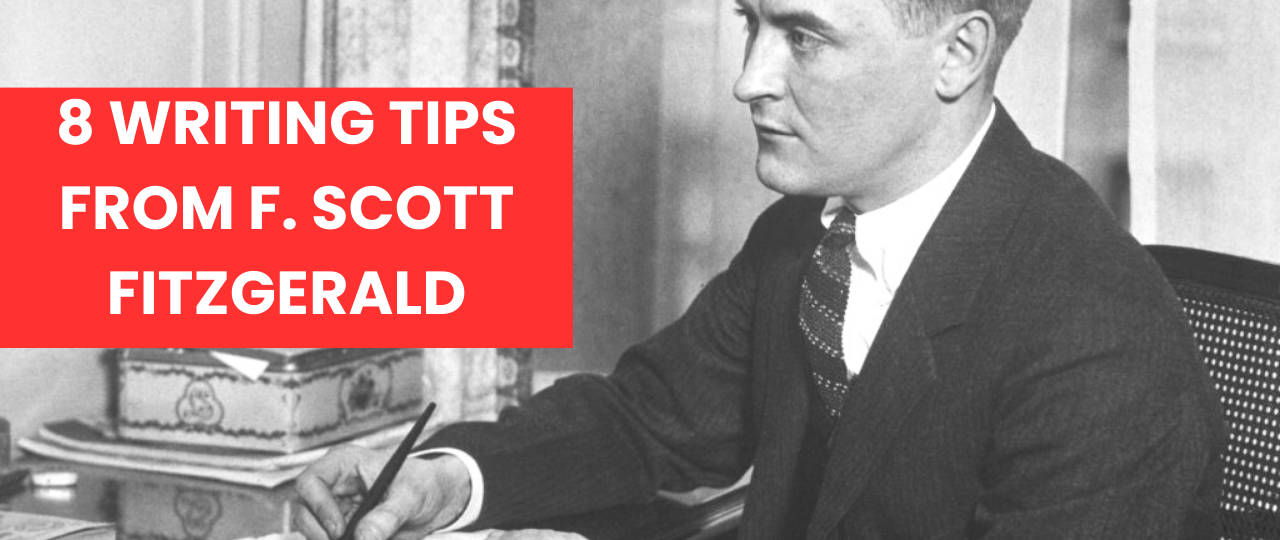F. Scott Fitzgerald’s (1896-1920) reputation soared in the 1920s’ with novels such as Tender is the Night and This Side of Paradise, and his The Great Gatsby remains one of the most canonical works of American Literature. While many view Fitzgerald as a natural-born writer, he actually found writing to be rather arduous, once commenting that, “All good writing is swimming under water and holding your breath.”
With this in mind, he had a collection of rules that helped him during his successful but unfortunately short writing career, and Salty Vixen Stories & More is delighted to present them here:
1: Make a detailed outline of your story: When writing his novels, Fitzgerald planned and monitored the activities of his characters on charts. He also made a timeline for the action of the novel, starting with the climax and filling in the past and future events.
2: Take detailed and organized notes : Fitzgerald was aware that a good thought or observation that was not written down may never surface again. Hence, he recorded them in carefully organized notebooks, under categories such as,
“Conversations and Things Overheard” and “Feelings and Emotions”.
3: Keep your work-in-progress private : In Fitzgerald’s view, every book was a personal secret until it was published. A work-in-progress seemed to “lose something” when he discussed it with others.
4: Create people, not types : Ironically, the creator of many characters who typified the 1920s didn’t mean to do so at all. Fitzgerald preferred individuals over types, and always sought to create characters that were unique. He explains this method concisely at the beginning of his short story, The Rich Boy:
“Begin with an individual, and before you know it you find that you have created a type; begin with a type, and you find that you have created–nothing.”
5: Avoid exclamation points: In contrast to the romantic and often over-sentimentalized writing of the previous literary period, Fitzgerald preferred strong emotions to speak for themselves and not to be denoted by punctuation.
“An exclamation point is like laughing at your own joke,” he once quipped.
6: Use familiar words: In a similar departure from the Victorian Age, Fitzgerald opted for the ordinary or common word over that which was bombastic or esoteric.
“You ought never to use an unfamiliar word unless you’ve had to search for it to express a delicate shade,” he wrote to a friend.
Nonetheless, being the organized writer that he was, he was also careful to state exceptions to this rule: “unfamiliar” words were permissible when a writer wishes to avoid repetition and wants to keep a certain rhythm.
7: Give flow to your sentences through verbs rather than adjectives: “All fine prose is based on the verbs carrying the sentences,” advised Fitzgerald.
“They make sentences move.” Fitzgerald’s novels were known for being leaner and containing more action than their 19th-century predecessors, and were some of the first examples of modern writing. They still have a quick and active pace when read today.
8: Don’t be selfish : Admitting that it is indeed painful to cut or reduce part of your novel, Fitzgerald admonishes us against becoming too attached to a character or scene. As subjective as writing may be, it needs to be looked at objectively, and extraneous matter ultimately detracts from the quality of one’s work.
“You don’t write because you want to say something, you write because you have something to say,”
was one of Fitzgerald’s ways of telling writers that they were writing for an audience, not for themselves.




















